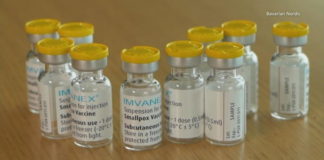
The recent overturning of the Roe versus Wade ruling, which decriminalised abortion in the US in 1973, is a setback for those of us who believe in women’s rights. It’s also a serious threat to public health in that country. The ruling was supported by conservative judges in the US Supreme Court. However, the history of the criminalisation of abortion in the US — and most of Europe — speaks of the hegemony of the church in such matters.
On the heels of this prejudiced verdict, another federal judge in Texas ruled that PrEP, a drug that helps avoid HIV in people at high risk, violates religious liberty. Employers, who were litigants in this case, felt that the drug encourages gay and extramarital sex by making it safer. This too stems from dyed-in-the-wool religious biases against homosexuality.
Gender reassignment below 18 years is now legally forbidden in Hungary, which has seen acute theocratisation in Europe in recent times. On August 5, three men were arrested in Warsaw, Poland for hanging a (queer) pride flag on the statues of Jesus Christ and the Warsaw Mermaid. Poland is currently ruled by the far-right wing and populist, Law and Justice Party that sees homosexuality in poor light. Thus, despite the presence of democratically-elected governments globally, the theocratisation of nations is happening at an alarming pace and this is having a deleterious impact on several issues of critical public importance, including public health. This is important in the Indian context as well, where a tenacious effort is driving us dangerously close to the idea of converting the nation into a “Hindu Rashtra”.
The intersection of religion and public health is not only complex but dangerous in more than one way. Practices like burqa, purdah, female genital mutilation, and dietary restrictions dictated by religion compromise public health. In Pakistan, attacks on polio vaccination workers are a classic example of a public health project being dented by a concoction of religion and ignorance. The refusal of followers of Jehovah’s Witnesses to receive blood transfusion is a known dilemma for surgeons in Western medical practice. In India, the recent push by some state governments to serve “pure vegetarian” meals in the Mid-day meal programme for schools is also an example where religious influence can dilute an important public health measure.
Subscriber Only Stories
In the post-colonial world, it was assumed that the establishment of liberal democracies will reduce the influence of religion, at least in governance and national policymaking. Unfortunately, over the last three decades or so, liberal democracies have seen the most flagrant interference of religion both in governance and policy-making. In India, the onset of the COVID-19 pandemic saw an unprecedented onslaught on rational thinking.
In a country like India where religion has a large presence, it is essential that the state acts with extreme care and caution when public health issues get linked with religion — this could include attitudes of the caregivers and patients in palliative cancer care, end-of-life care, promotion of transplant surgeries, mental health, and promotion of healthy dietary habits. In officially declared theocratic states like Yemen and Afghanistan, the interference of state religion in public health programmes has led to extremely poor health parameters. The Infant Mortality Rate (IMR) in Afghanistan is 45 per 1,000 live births while it is 42.2 per 1,000 live births in Yemen — the two countries are amongst the worst in the world in this respect.
Having said that, it appears that the most effective antidote to theocratic destruction of public health is money. Affluent Saudi Arabia, the most theocratised country in the world, has an IMR of 5.4 per 1000 live births, which is comparable to that of the US (5.5 per 1000 live births) and UK (3.4 per 1000 live births). Saudis spend 5.6 per cent of their GDP on health (this figure is less than 2 per cent in India).
Advertisement
Religion has, no doubt, played a crucial role in the progress of the human race, but its beneficial impact in matters of health and disease is long over. For an extremely unequal society like India, religious interference could seriously undermine public health goals. Most importantly, the government must ensure that at least 5 per cent of the GDP is spent on healthcare.
The writer is Professor of Orthopaedics, AIIMS, Delhi. Views are personal








